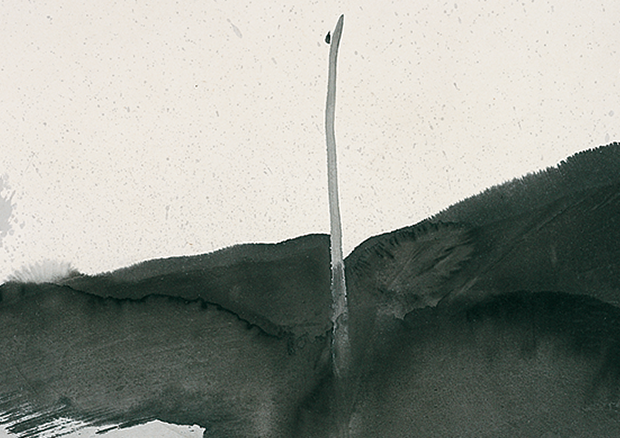Wo die Worte aufhören, fängt das Malen an
Gao Xingjian. Ink drawings
No one was more surprised than Gao himself when he was awarded the Nobel Prize for literature in the year 2000 for his complete works.
During the Cultural Revolution (1966-1976) Gao was imprisoned for five years in a camp for ideological re-education where he was forced to burn his own writings. It was only after 1979 that it became possible to publish his work and to travel abroad. He was repeatedly accused of "intellectual pollution" and his works were banned in China. This finally decided him to go into exile. In 1988 he settled in Paris as a political refugee and took French citizenship in 1998. Before he was awarded the Nobel Prize for literature, Gao earned his living by painting. He avails himself of the most traditional of all Chinese painting techniques: he paints with ink on rice paper. His paintings are meditative, the creative process is an intuitive act in Gao's case. As he says himself, in his painting the movement comes from his body, his art creates itself. His pictures are an expression of an inner vision, even if Gao - as an artist - withdraws himself in his pictures. There are no clear contours in the ink drawings, everything is in flux and in a state of permanent change, the colours run together. For Gao, painting starts where words fail or are inadequate for expressing oneself. Gao's ink drawings have been shown in many exhibitions, among them in Beijing, Hong Kong, Taipei, Paris, Marseille, Berlin, London, New York, Vienna and Moscow. A small selection of drawings can be viewed at the Museum of Fine Arts Bern until December 16. The exhibition is accompanied by an interview with Gao and the first Swiss screening of his film "La silhouette, sinon l'ombre" in the cinema of the Museum.


